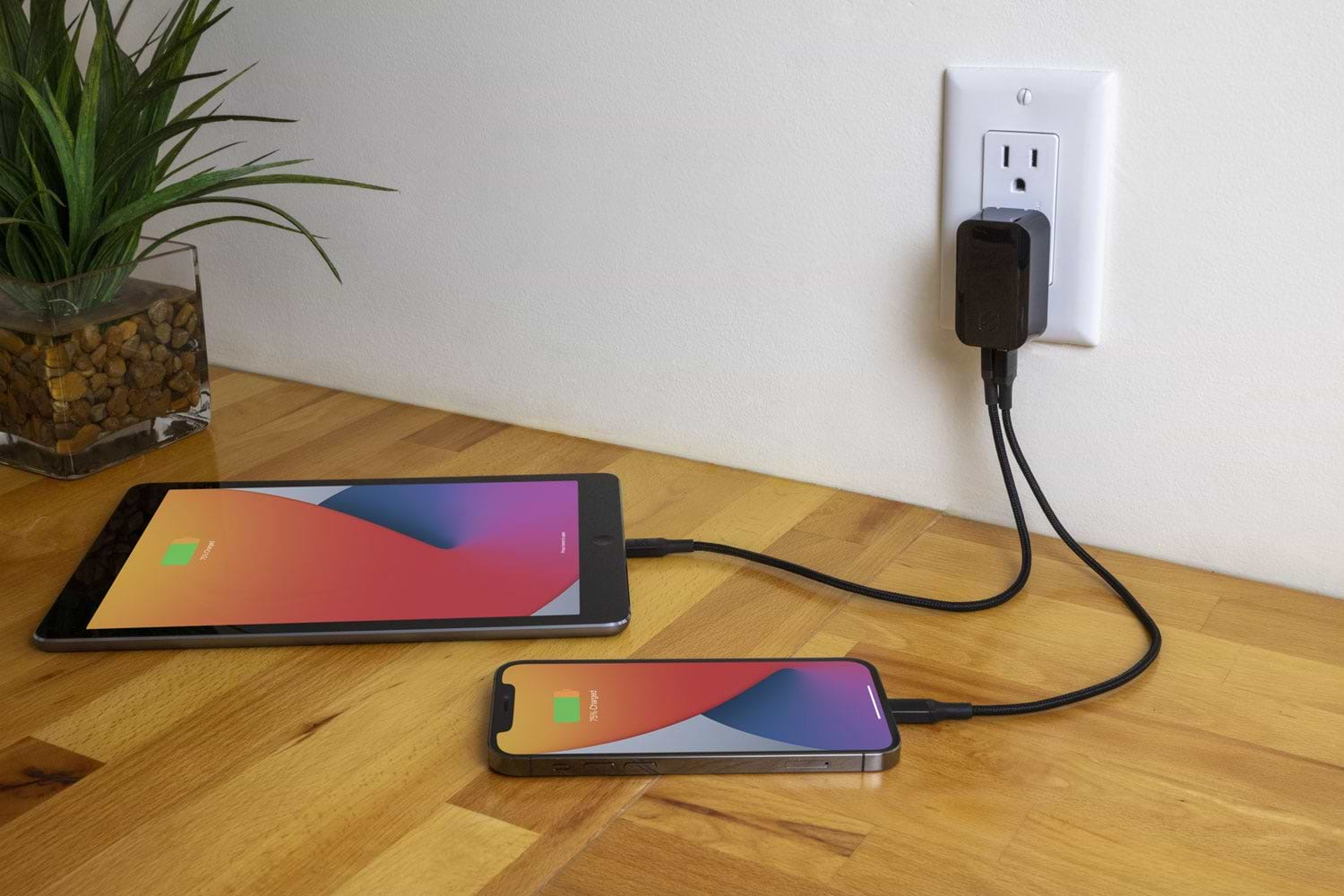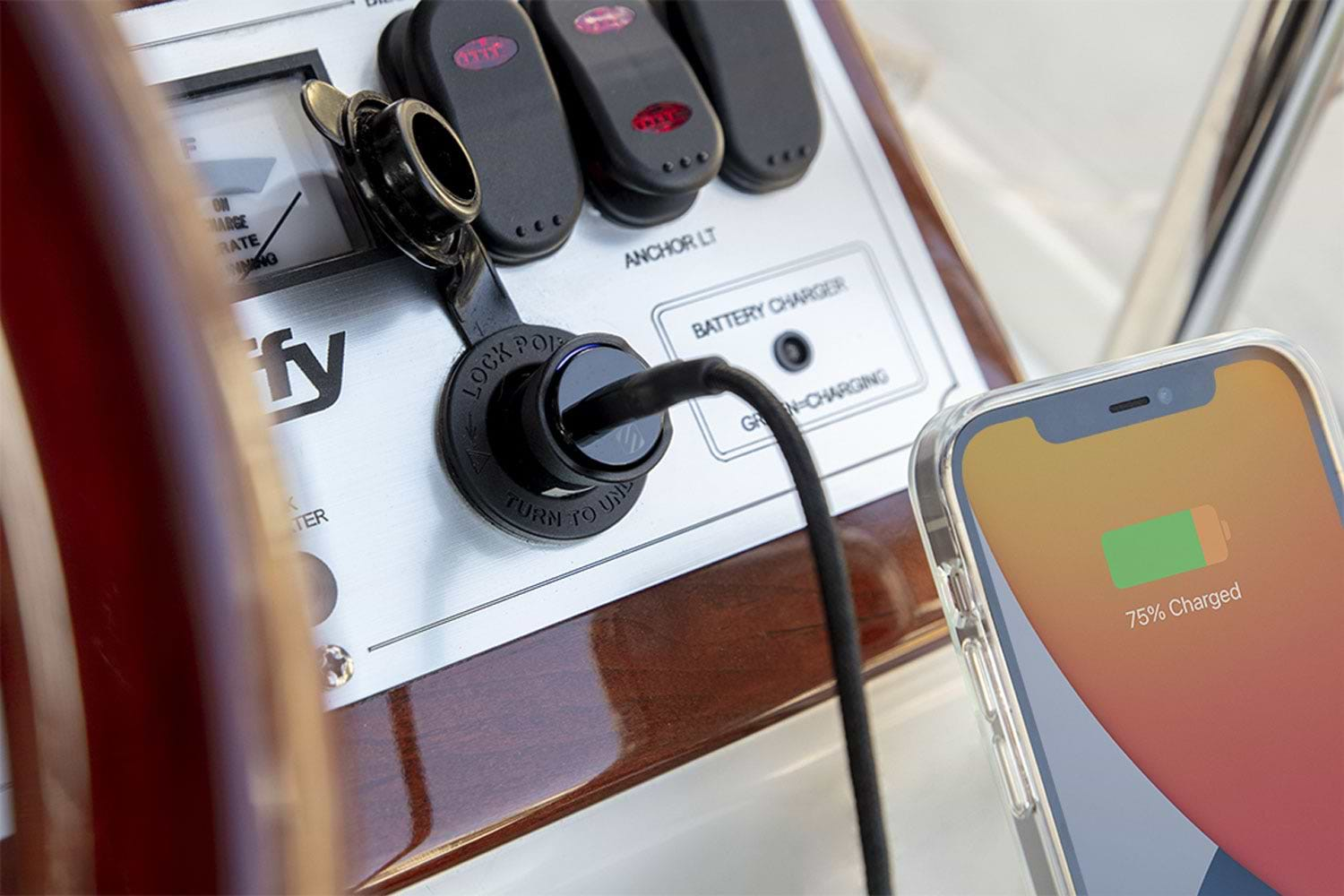Fast Charging and Its Impact on Battery Health

Fast charging has become an indispensable feature for modern smartphones and other electronic devices. It allows users to quickly recharge their devices and get back to their activities in no time. However, as convenient as fast charging may be, there are concerns about its long-term impact on battery health.
In this article, we will explore the science behind fast charging, its relationship with battery lifespan, debunk common myths, and provide tips for maintaining battery health while using fast charging. Additionally, we will discuss the future of fast charging technology and its potential impact on battery health.
Understanding Fast Charging Technology
Before we delve into the impact of fast charging on battery health, let's first understand how this technology works. Fast charging enables devices to receive a higher rate of electrical power, allowing for quicker charging times compared to traditional charging methods. It achieves this by using higher voltage and current, which increases the flow of energy into the battery.
Fast charging technology has revolutionized the way we charge our devices. Gone are the days of waiting for hours for our smartphones to charge. With fast charging, we can now power up our devices in a fraction of the time, giving us more convenience and flexibility in our daily lives.
The Science Behind Fast Charging
Fast charging relies on a combination of factors such as battery chemistry, charging protocols, and device hardware. The charging process consists of two main phases: the bulk charging phase and the topping-off phase.
During the bulk charging phase, the charger delivers a higher electrical current to quickly charge the battery until it reaches a certain threshold. This phase is crucial in rapidly replenishing the battery's energy levels, especially when we're in a hurry and need our devices to be ready as soon as possible.
Once this threshold is reached, the topping-off phase begins, where the charger delivers a lower current to complete the charging process. This phase ensures that the battery is fully charged without overloading it with excessive power, which could potentially lead to overheating or reduced battery lifespan.
Evolution of Fast Charging
The concept of fast charging has evolved over the years, with advancements in charging technologies and battery designs. Initially, fast charging was limited to certain proprietary standards, but now, most smartphones support widely adopted standards such as Quick Charge and USB Power Delivery.
These standards ensure compatibility across different devices and chargers, providing a consistent fast charging experience for users. This compatibility is essential in today's fast-paced world, where we often find ourselves using different devices and chargers interchangeably.
As technology continues to advance, we can expect even faster charging speeds and more efficient charging methods. Researchers and engineers are constantly working on improving battery technology to support faster charging without compromising battery health.
In conclusion, fast charging technology has revolutionized the way we charge our devices. By understanding the science behind fast charging and the evolution of this technology, we can appreciate the convenience it brings to our lives. As we continue to rely on our devices for various tasks, fast charging ensures that we can stay connected and productive without the long wait times of traditional charging methods.
The Relationship Between Fast Charging and Battery Health
While fast charging offers undeniable convenience, it's important to consider its impact on battery health. Here, we will explore how fast charging affects battery lifespan and the trade-off between speed and battery health.
Fast charging has revolutionized the way we recharge our devices, allowing us to quickly power up our smartphones, tablets, and other gadgets in a matter of minutes. However, this convenience comes with a potential downside - the impact on battery health.
How Fast Charging Affects Battery Lifespan
Fast charging can potentially accelerate battery degradation. When a battery is charged at a higher current, heat is generated within the battery cells. This heat can cause chemical reactions within the battery that can lead to the deterioration of its components over time. As a result, the overall lifespan of the battery may be reduced.
Imagine your battery as a delicate ecosystem of chemical reactions. When you charge your device rapidly, you're essentially injecting a surge of energy into this ecosystem. While it may seem harmless at first, the excess heat generated can disrupt the delicate balance within the battery, causing it to age faster than it would with slower charging methods.
It's worth noting that the impact of fast charging on battery lifespan can vary depending on several factors, such as battery capacity, temperature, and the specific fast charging technology being used. Manufacturers have implemented various mechanisms to mitigate the negative effects of fast charging, such as temperature regulation and adaptive charging algorithms.
For instance, some smartphones employ intelligent charging systems that monitor the battery's temperature and adjust the charging speed accordingly. This helps prevent excessive heat buildup and ensures a more controlled charging process, ultimately extending the battery's lifespan.
The Trade-off Between Speed and Battery Health
When it comes to fast charging, there is a trade-off between speed and battery health. While fast charging allows for quick recharge times, frequent use of this feature may lead to faster battery degradation. In other words, charging your device at a slower rate or using regular charging methods can help prolong battery lifespan, but it may not be as convenient in certain situations.
Consider a scenario where you're rushing to catch a flight and your smartphone's battery is running dangerously low. Fast charging becomes a lifesaver in this situation, allowing you to quickly top up your battery before boarding the plane. However, if you consistently rely on fast charging as your primary charging method, you may notice a decline in your battery's overall capacity over time.
It's important to strike a balance between convenience and battery health. If you find yourself frequently using fast charging, it may be beneficial to occasionally switch to regular charging methods, especially when you have more time to spare. This can help alleviate the strain on your battery and promote its long-term health.
In conclusion, fast charging is undoubtedly a game-changer in the world of portable devices. It offers unparalleled convenience and allows us to stay connected in our fast-paced lives. However, it's crucial to be aware of its potential impact on battery health. By understanding the relationship between fast charging and battery lifespan, we can make informed decisions about how we recharge our devices, ensuring a balance between speed and longevity.


Debunking Myths About Fast Charging
There are several misconceptions surrounding fast charging that need to be debunked. Let's address some of the most common myths and provide accurate information.
Common Misconceptions About Fast Charging
- Fast charging always damages the battery: This is not entirely true. While fast charging can contribute to battery degradation, modern devices and chargers are designed to regulate temperature and current to minimize this effect.
- Slower charging is always better for battery health: While slower charging may be beneficial for battery health in some cases, it's not always practical or necessary. The key is to strike a balance between convenience and battery longevity.
- You should always use the charger that came with your device: While it's generally recommended to use the original charger, third-party chargers that adhere to the same fast charging standards can provide a similar charging experience without compromising battery health.
The Truth About Fast Charging and Battery Degradation
Fast charging does contribute to battery degradation, but the extent of this degradation depends on various factors. The overall impact can be minimized by avoiding extreme temperatures, avoiding deep discharges, and using fast charging sparingly when not required.
One important factor to consider is temperature. High temperatures can accelerate the degradation process, so it's crucial to avoid exposing your device to excessive heat while fast charging. This means keeping it away from direct sunlight or hot surfaces.
Another factor is the depth of discharge. Deep discharges, where the battery is drained to very low levels before recharging, can also contribute to battery degradation. It's advisable to avoid letting your device's battery level drop too low before plugging it in for fast charging.
Additionally, it's worth noting that not all fast charging technologies are created equal. Different devices may use different fast charging standards, such as Qualcomm Quick Charge or USB Power Delivery. These technologies have their own unique algorithms and protocols to regulate charging speed and temperature. Understanding the specific fast charging technology used by your device can help you make informed decisions about when and how to utilize fast charging.
While it's true that fast charging can cause some degree of battery degradation over time, it's important to remember that the convenience it offers is often worth the trade-off. Modern smartphones and chargers are designed to strike a balance between fast charging capabilities and battery health. By following best practices, such as avoiding extreme temperatures and deep discharges, you can enjoy the benefits of fast charging without significantly compromising your battery's long-term performance.
Tips for Maintaining Battery Health While Using Fast Charging
Although fast charging may have some impact on battery health, there are practices you can adopt to help mitigate potential issues. Let's explore some best practices for maintaining battery health while using fast charging.
Best Practices for Fast Charging
- Avoid high temperatures: Heat is a significant factor that contributes to battery degradation. Keep your device in a cool environment while charging.
- Avoid deep discharges: Frequent deep discharges can put additional stress on the battery. It's better to maintain the battery charge level between 20% and 80%.
- Use original or certified chargers: To ensure compatibility and optimal charging performance, it's generally recommended to use the charger that came with your device or certified chargers that adhere to the same fast charging standards.
Advanced Battery Care Strategies
If you want to go the extra mile in maintaining battery health, there are advanced strategies you can adopt:
- Charge your device slowly overnight: If your device supports it, using a slower charging method overnight can help keep the battery temperature lower during the charging process.
- Avoid overcharging: It's generally recommended to unplug your device when it reaches a full charge to avoid unnecessary stress on the battery.
- Enable battery optimization features: Many devices offer built-in battery optimization features that can intelligently manage charging patterns and help prolong battery lifespan.
Future of Fast Charging and Battery Health
The future of fast charging looks promising, as manufacturers continue to innovate and develop new technologies to improve battery charging efficiency and mitigate the impact on battery health.
Innovations in Fast Charging Technology
Research efforts are focused on developing advanced charging algorithms, cooling mechanisms, and better battery materials to enhance the fast charging experience. Technologies such as gallium nitride (GaN) chargers and silicon anode batteries show great potential in improving charging speeds while maintaining battery health.
Improving Battery Health in the Era of Fast Charging
As the demand for fast charging increases, so does the need to address battery health concerns. Manufacturers are investing in research and development to strike a balance between fast charging capabilities and battery longevity. By implementing smarter charging algorithms and optimizing battery designs, they aim to deliver faster charging speeds without compromising battery health.
Conclusion
Fast charging has revolutionized the way we recharge our devices, offering unparalleled convenience. However, it's essential to understand and consider the potential impact on battery health. By following best practices, using certified chargers, and adopting advanced battery care strategies, users can enjoy the benefits of fast charging while minimizing its potential negative effects. As technology continues to evolve, the future of fast charging holds promise for further improvements in battery charging efficiency and longevity.